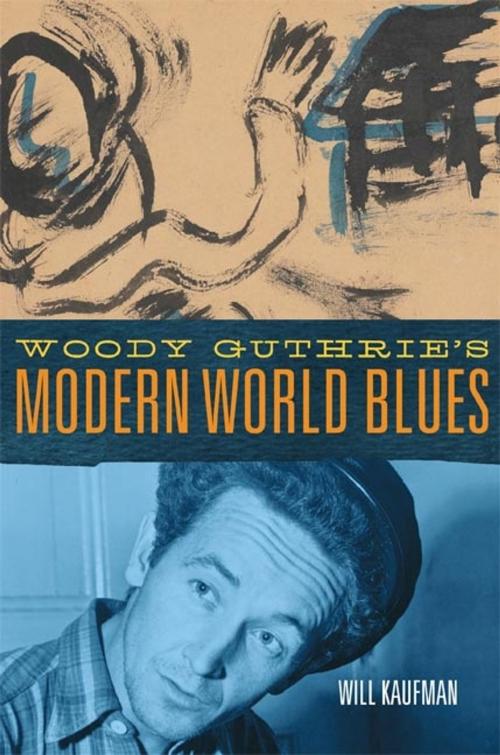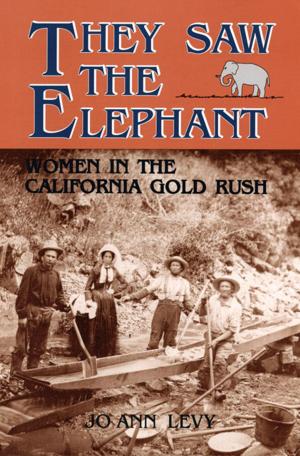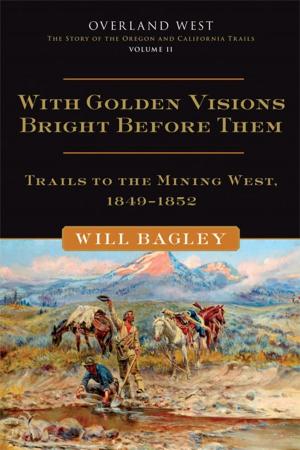| Author: | Will Kaufman | ISBN: | 9780806159690 |
| Publisher: | University of Oklahoma Press | Publication: | October 12, 2017 |
| Imprint: | University of Oklahoma Press | Language: | English |
| Author: | Will Kaufman |
| ISBN: | 9780806159690 |
| Publisher: | University of Oklahoma Press |
| Publication: | October 12, 2017 |
| Imprint: | University of Oklahoma Press |
| Language: | English |
Mention Woody Guthrie, and people who know the name are likely to think of the “Okie Bard,” dust storms behind him, riding a boxcar or walking a red-dirt road, a battered guitar strapped to his back. But unlock Guthrie from the confines of rural folk and Hollywood mythology, as Will Kaufman does here, and you’ll find an abstract painter and sculptor who wrote about atomic energy and Ingrid Bergman and developed advanced theories of dialectical materialism and human engineering—in short, a folk singer who was deeply engaged with the art, ideas, and issues of his time.
Guthrie may have been born in the Oklahoma hills, but his most productive years were spent in the metropolitan centers of Los Angeles and New York. Machines and their physics were among his favorite metaphors, fast cars were his passion, and airplanes and even flying saucers were his frequent subjects. His career-long immersion in radio, recording, and film inspired trenchant observations concerning mass media and communication, and he contributed to modern art as a prolific abstract painter, graphic artist, and sculptor.
This book explores how, through multiple artistic forms, Guthrie thought and felt about the scientific method, atomic power, and war technology, as well as the shifting dynamics of gender and race. Drawing on previously unpublished archival sources, Kaufman brings to the fore what Guthrie’s insistently folksy popular image obscures: the essays, visual art, letters, verse, fiction, and voluminous notebook entries that reveal his profoundly modern sensibilities.
Woody Guthrie emerges from these pages as a figure whose immense artistic output reflects the nation’s conflicted engagement with modernity. Capturing the breathtaking social and technological changes that took place during his extraordinarily productive career, Woody Guthrie’s Modern World Blues offers a unique and much-needed new perspective on a musical icon.
Mention Woody Guthrie, and people who know the name are likely to think of the “Okie Bard,” dust storms behind him, riding a boxcar or walking a red-dirt road, a battered guitar strapped to his back. But unlock Guthrie from the confines of rural folk and Hollywood mythology, as Will Kaufman does here, and you’ll find an abstract painter and sculptor who wrote about atomic energy and Ingrid Bergman and developed advanced theories of dialectical materialism and human engineering—in short, a folk singer who was deeply engaged with the art, ideas, and issues of his time.
Guthrie may have been born in the Oklahoma hills, but his most productive years were spent in the metropolitan centers of Los Angeles and New York. Machines and their physics were among his favorite metaphors, fast cars were his passion, and airplanes and even flying saucers were his frequent subjects. His career-long immersion in radio, recording, and film inspired trenchant observations concerning mass media and communication, and he contributed to modern art as a prolific abstract painter, graphic artist, and sculptor.
This book explores how, through multiple artistic forms, Guthrie thought and felt about the scientific method, atomic power, and war technology, as well as the shifting dynamics of gender and race. Drawing on previously unpublished archival sources, Kaufman brings to the fore what Guthrie’s insistently folksy popular image obscures: the essays, visual art, letters, verse, fiction, and voluminous notebook entries that reveal his profoundly modern sensibilities.
Woody Guthrie emerges from these pages as a figure whose immense artistic output reflects the nation’s conflicted engagement with modernity. Capturing the breathtaking social and technological changes that took place during his extraordinarily productive career, Woody Guthrie’s Modern World Blues offers a unique and much-needed new perspective on a musical icon.















